Results 1 to 10 of 10
 39Likes
39Likes
Thread: Storch waterstone for scythes
Hybrid View
-
04-13-2021, 10:34 AM #1

My father taught me the handling of a scythe and how to peen and sharpen and the scythe. Nowadays I sometimes swap from the brushcutter to the scythe cutting the gras on my land, just to keep the tradition alive and to do at least a little for the invironment. When I am in the woods I often also take the scythe in my Pickup truck (blade and snath seperately) just to find my way through the nettles and blackberry hedges if necessary.
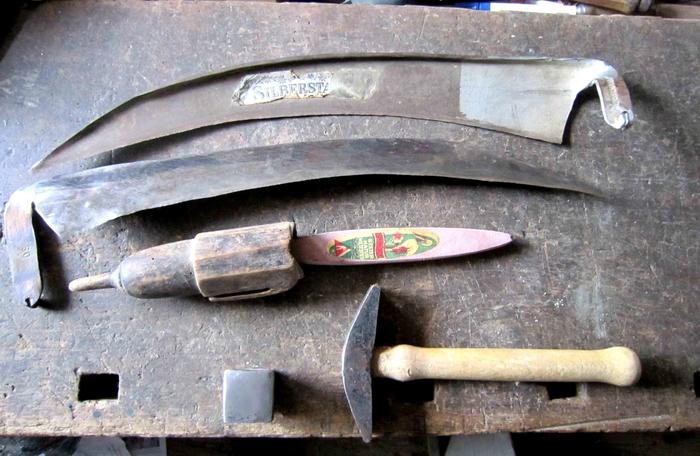
I also like the Storchen scythestones a lot, which are made from natural red sandstone. They are relatively fast but fine enough and they do have grip - the surface won’t get sticky so much as for example the carborundum stones often do, even when you are in the nature and don’t have water available for cleaning (and sharpening). The Storch stones are not produced any more but you can find old (NOS) ones easily on the web.
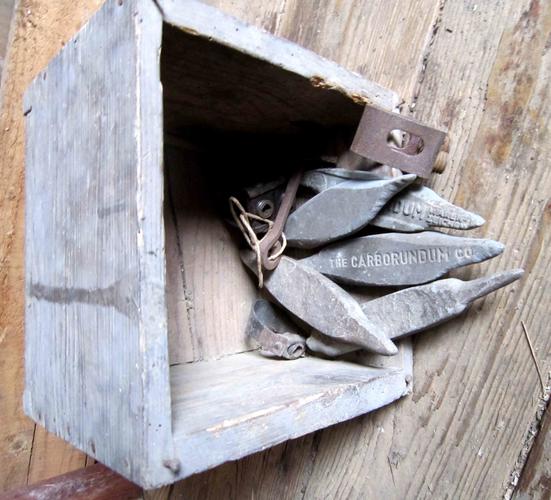
Above is a picture of the old scythe stones from my father and grandfather. After widely useage they have been stored in a box but not thrown away. You know in the (bad) old times nothing was thrown away but kept for even worse times. Most of them are old carborundum manmade stones but some are natural.
By the way. Also the late Escher company made scythe stones – manmade stones, not from natural rock. In the small creek downwards the last Escher&Son factory you can still find broken bits form the old production.
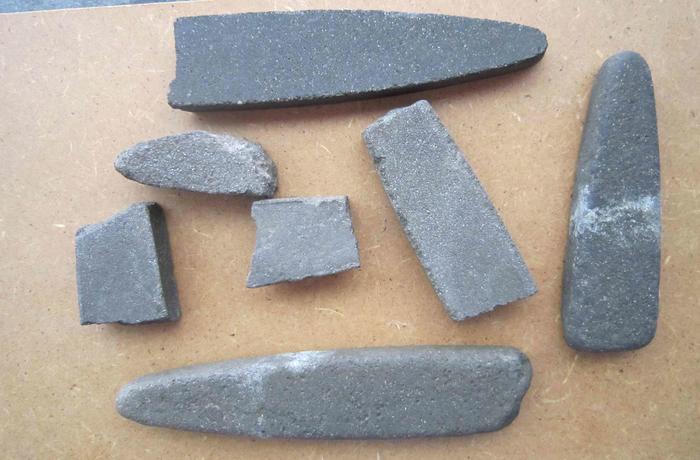
Also the follow up from Escher&Co - SAG/Pike - made scythe stones from pink aluminium oxide.
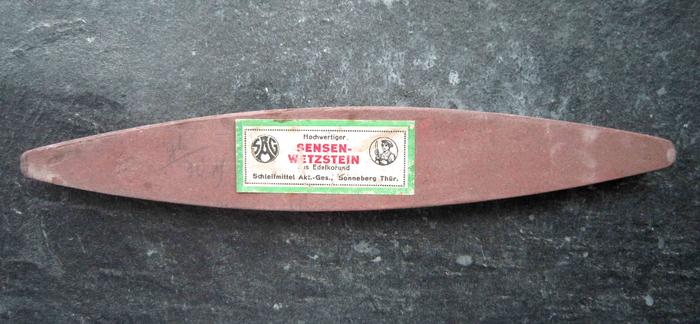
Sorry I came off a little bit OT now.
Regards Peter
-
The Following User Says Thank You to hatzicho For This Useful Post:
rolodave (04-13-2021)
-
04-13-2021, 10:52 AM #2

I also have my great-grandfather's peening anvils and many different scythes they used for different purposes.
(Harvesting hay, grains, etc.)
Most anvil are "field anvils" for peening while out in the fields all day.
Unfortunately I don't have his scythe stones.
I do have his razors, coticule/bbw and strop; so that's still pretty sweet!
The scythe blades that I've retrieved on our farm were made in Austria IIRC.
I use Falci blades myself and find them outstanding.
I use a Pradalunga and Rozsutec stone. (I also have a coarse stone for when peening is not an option)Last edited by TristanLudlow; 04-13-2021 at 01:32 PM.
-
04-13-2021, 02:20 PM #3

As always: Peter knows more than anyone else when it comes to sharpening stones
 And has the best looking stones. I love the old Storch label, saw an NOS one on ebay but that was chipped. So settled for the one with the simpler label that was bigger as well.
Plus ça change, plus c'est la même chose. Jean-Baptiste Alphonse Karr.
And has the best looking stones. I love the old Storch label, saw an NOS one on ebay but that was chipped. So settled for the one with the simpler label that was bigger as well.
Plus ça change, plus c'est la même chose. Jean-Baptiste Alphonse Karr.
-
04-13-2021, 04:21 PM #4

A sorry Kees,
I should hold back a little more
Actually this was my first look and post in the hones section for month - was more present in the razor threads.
But as I saw your post here this morning, I simply needed to reply. And without pictures, it‘s not fun.
So just one more here, showing some natural scythe stones of my collection.
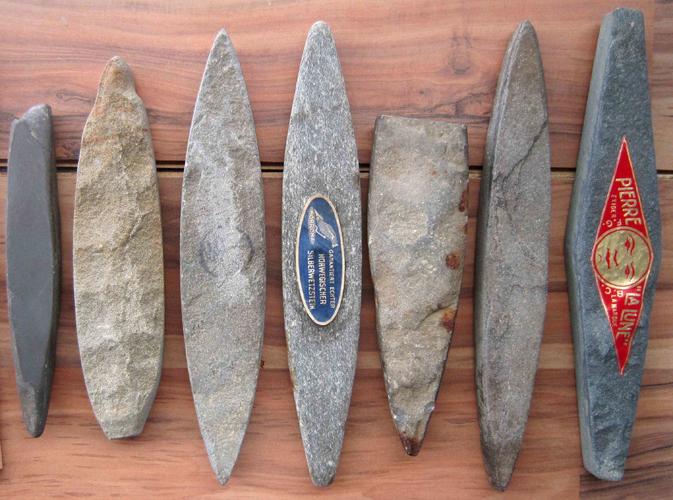
Regards Peter
-
04-13-2021, 06:17 PM #5

Peter, have you ever considered starting a hone museum and selling and selling entrance tickets?
Plus ça change, plus c'est la même chose. Jean-Baptiste Alphonse Karr.
-
04-14-2021, 10:42 AM #6

How the Gosauer sandstone is quarried and turned into sharpening stones by hand (less than 4 minutes):
https://www.servusmarktplatz.com/p/O...gn=lowerfunnelPlus ça change, plus c'est la même chose. Jean-Baptiste Alphonse Karr.
-
04-14-2021, 02:17 PM #7
-
04-14-2021, 02:44 PM #8

Never taken such a close look. Great picture!
Plus ça change, plus c'est la même chose. Jean-Baptiste Alphonse Karr.



 LinkBack URL
LinkBack URL About LinkBacks
About LinkBacks






 Reply With Quote
Reply With Quote

